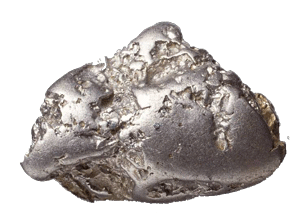
PLATINUM prices are next year expected to rise by 5% as Zimbabwe pins hope on the capital intensive mining sector to drive the economy, a global think tank has projected.
Acting BusinesS Editor
In its analysis on the country’s platinum sector, the Economist Intelligence Unit (EIU) said prices of the white metal, which currently accounts for the bulk of mineral exports, may advance, reaching the all-time high of $1 800 by 2017.
The sector, according to the latest report by the Chamber Mines of Zimbabwe requires $5,3 billion investment to outpace Russia as the second largest producer by 2017.
“After two successive years of contraction, we expect platinum prices to increase by almost 5% in 2014, and by an annual average of 3,3% over the following four years, taking platinum prices to an all-time high of $1 800/troy oz,” the EIU said.
“Clearly, this is an incentive for platinum producers; however, there are also plenty of disincentives, notably doubts about the government’s ability to guarantee power supplies and its attitude towards investment.”
The development of the mining sector, the EIU further said, will hinge on the country’s new mining policy.
The research unit said growth of the sector is, however, anchored on government’s commitment in managing expenditure at a time when revenues are marginally rising.
- Chamisa under fire over US$120K donation
- Mavhunga puts DeMbare into Chibuku quarterfinals
- Pension funds bet on Cabora Bassa oilfields
- Councils defy govt fire tender directive
Keep Reading
The mining sector accounts for 58% of the country’s total exports.
“ Zimbabwe is supposedly operating a cash-budget system, and in the short term it is debatable whether in the wake of a dubious election victory, the government will be prepared to cut expenditure in other areas, notwithstanding the importance of improving the reliability of energy supplies.
“Even in the medium term, without some form of rapprochement with the International Monetary Fund and international donors, there are question marks over the sustainability of the authorities’ fiscal stance, with its reliance on domestic arrears and loans from non-traditional sources such as China.”
Zimbabwe currently has the second known largest platinum reserves after South Africa.
Experts say underfunding and limited exploration have over the years stifled growth of the mining sector, now the mainstay of the economy after overtaking agriculture.
Mining contribution to the gross domestic product has grown from an average of 10,2% in the 1990s to an average of 16,9% from 2009–2011.
Official figures show that Zimbabwe currently accounts for approximately 6% of global platinum production, with 2013 output estimated at around 375 000 ounces.











